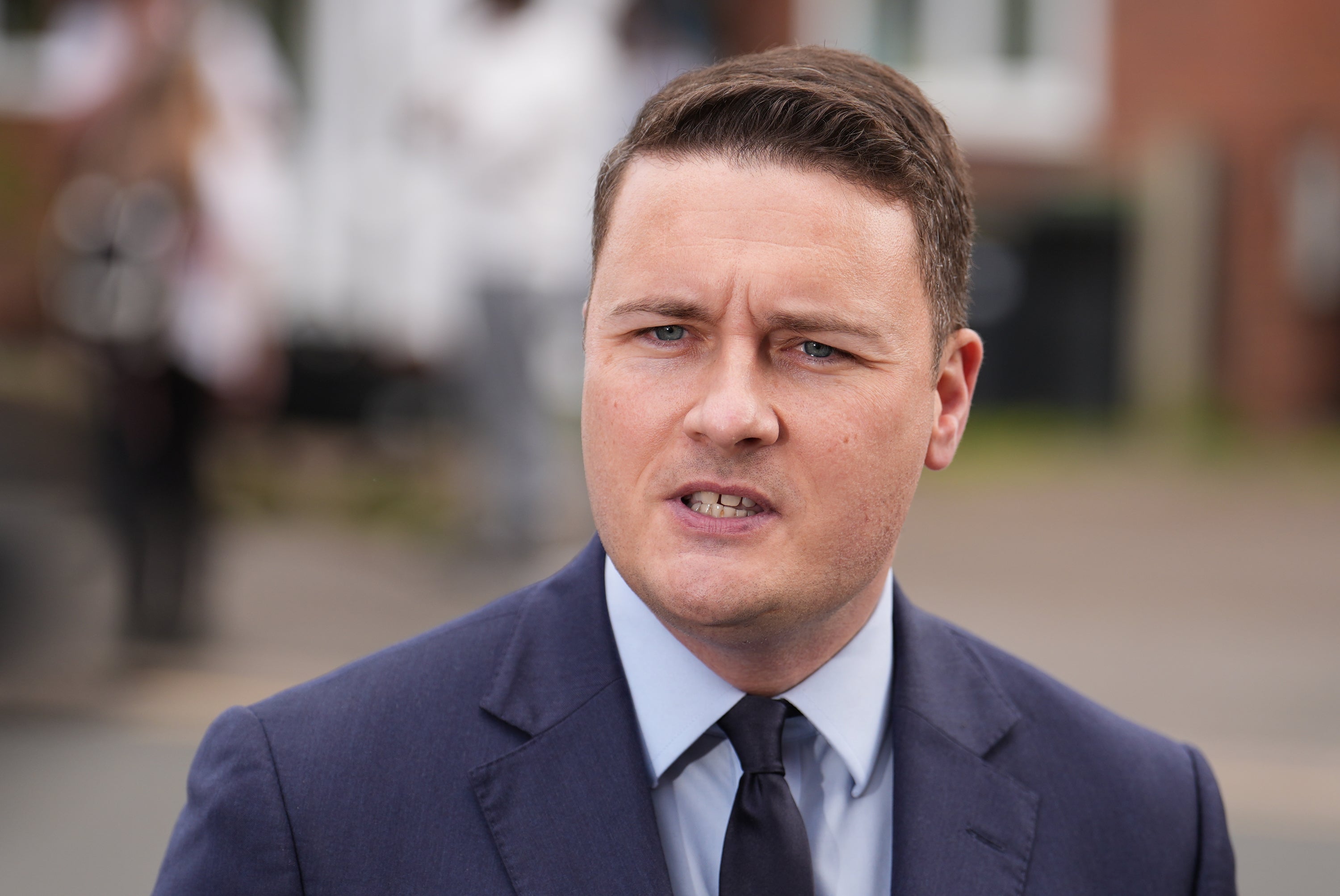Social media discussion of suicides by trans people ‘insensitive and dangerous’
Data on suicides and gender dysphoria patients was reviewed at the Health Secretary’s request after claims made on Twitter.

Support truly
independent journalism
Our mission is to deliver unbiased, fact-based reporting that holds power to account and exposes the truth.
Whether $5 or $50, every contribution counts.
Support us to deliver journalism without an agenda.

Louise Thomas
Editor
A claim of a large rise in suicide among young gender dysphoria patients at a London clinic is not supported by data, a review has concluded.
Discussion of the issue online was branded “insensitive, distressing and dangerous” by an adviser to Government.
Professor Louis Appleby was asked by new Health Secretary Wes Streeting to review NHS England data on suicides by young patients of the now-closed Gender Identity Development Service (Gids) at the Tavistock and Portman NHS Foundation Trust.
The way that this issue has been discussed on social media has been insensitive, distressing and dangerous, and goes against guidance on safe reporting of suicide
The request followed claims at the weekend by legal campaign group the Good Law Project, which said the ban on puberty blockers had “put young trans people’s lives at risk”.
In March, NHS England confirmed children would no longer be prescribed puberty blockers at gender identity clinics, except as part of clinical research trials which are not yet running.
The health service said the decision to stop the routine use of puberty blockers was taken on the basis that “there is not enough evidence to support (their) safety or clinical effectiveness”.
In May, Victoria Atkins, Mr Streeting’s predecessor in the former Conservative government, used Medicines Act 1968 powers to stop private or European organisations from prescribing puberty blockers to people aged under 18 if the drugs were intended to aid with gender incongruence or gender-affirming healthcare.
The legislation came after the publication of a long-awaited review by Dr Hilary Cass into children’s gender services in the NHS, which said youngsters have been let down by a lack of research and evidence on the use of puberty blockers and hormones.
The Cass Review concluded that while deaths by suicide in trans people of all ages continue to be above the national average, “there is no evidence that gender-affirmative treatments reduce this”, adding that available evidence suggests that the deaths “are related to a range of other complex psychosocial factors and to mental illness”.
Earlier this month, the High Court heard the new Government is considering making the emergency ban permanent, subject to the outcome of a legal challenge which claims the ban is unlawful.
Prof Appleby, in the findings of his review published on Friday, referred to a claim by the Good Law Project director about “an explosion” of deaths after an earlier restriction of puberty blockers following a 2020 High Court ruling, as well as “multiple references to children dying in future because they are unable to access puberty-blocking drugs”.

He said the claim is “said to be based on unpublished data provided by two members of staff at the Tavistock, described as whistleblowers”.
But Prof Appleby concluded that the available data from NHS England – based on an internal audit by the Tavistock of deaths among current and former Gids patients from 2018 to 2024 – does not support the claim.
He said there were 12 suicides across the six years – half aged under 18 and half aged 18 or above.
In the three years leading up to 2020/21, there were five suicides, compared with seven in the three years after.
Prof Appleby said: “The patients who died were in different points in the care system, including post-discharge, suggesting no consistent link to any one aspect of care. They had multiple social and clinical risk factors for suicide.
“However, it is likely that there has been a rise over a longer period as young people at risk have increasingly presented with gender dysphoria and referrals to Gids have risen.”
Gids saw a sharp increase in referrals of young people to more than 5,000 in 2021/22 compared with just under 250 a decade earlier.
It closed at the end of March and was replaced by two regional hubs in London and the North West.
Prof Appleby was critical of how the issue of suicide among young people with gender dysphoria has been referred to online.
He said: “The way that this issue has been discussed on social media has been insensitive, distressing and dangerous, and goes against guidance on safe reporting of suicide.
“One risk is that young people and their families will be terrified by predictions of suicide as inevitable without puberty blockers – some of the responses on social media show this.”
He said the claims “do not meet basic standards for statistical evidence”, adding that “to be reliable, evidence should be objective, unbiased and open to independent scrutiny”.
He said “puberty-blocking drugs have come to be seen as the touchstone issue, the difference between acceptance and non-acceptance”, something he described as “unfortunate” as he called for patients, staff and the public to move away from this perception.
He said: “In the end this is about a group of young people at risk of suicide and our collective responsibility to their safety.
“This means specialist health services with the capacity to respond to rising demand and appropriate skills in general services.
“It means a measured public discourse, making sure we do not stoke up prejudice or cause unnecessary alarm to the young people and their families.”
A Department of Health and Social Care spokesperson said decisions on children’s healthcare “must follow the evidence at all times” and insisted the Government is “committed to ensuring children questioning their gender receive the best possible multidisciplinary care, led by expert clinical guidance”.
They added: “It is vital that the public discussion around this issue is handled sensitively and responsibly.”
Good Law Project executive director Jo Maugham said: “I was not contacted in advance of the statement being released and will obviously need time to respond.
“I do have difficulties with the figures and analysis and will respond in due course.”
Subscribe to Independent Premium to bookmark this article
Want to bookmark your favourite articles and stories to read or reference later? Start your Independent Premium subscription today.